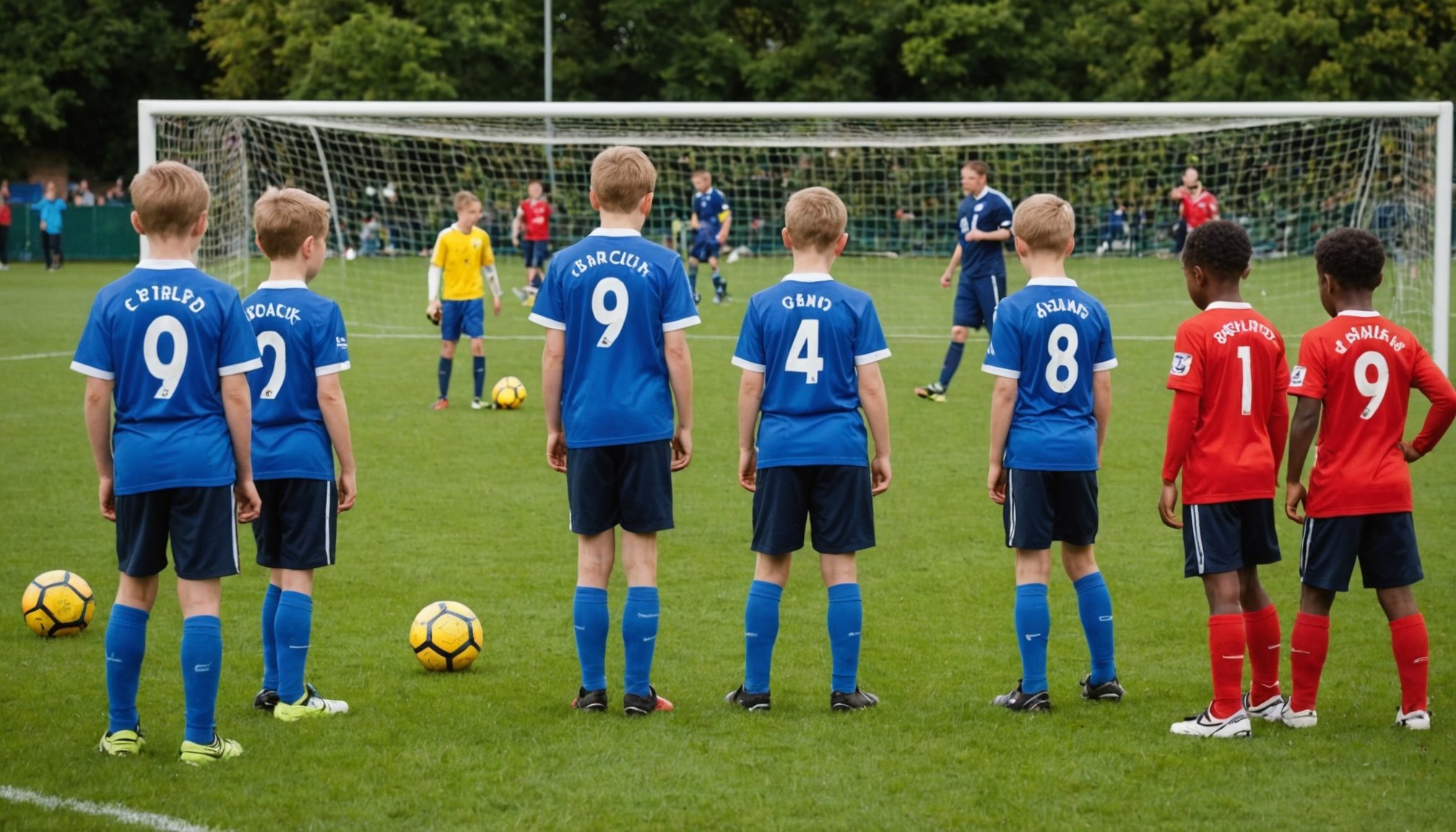Essential Coaching Approaches for Grassroots Success
Effective grassroots football coaching hinges on adopting clear, FA-recommended practices that prioritise long-term player development. Rather than focusing solely on winning games, coaches are encouraged to nurture skills, confidence, and teamwork in young players. This approach aligns closely with youth football development principles endorsed by the UK FA, which emphasise creating positive experiences for children.
A key element is adhering to the UK FA coaching standards, which set out structured guidelines to ensure coaches deliver safe, enjoyable, and developmentally appropriate sessions. These standards promote player-centred methods that respect individual learning paces while maintaining consistent skill progression.
Additional reading : Why Is Football More Than Just a Game in the UK?
Continuous professional development is crucial. Coaches benefit greatly from ongoing learning and formal coach accreditation programmes approved by the FA. This commitment improves coaching quality across grassroots football by keeping coaches up to date on evolving techniques and safeguarding policies.
By embedding these essentials, grassroots coaches lay a solid foundation for young players, fostering a love for football and developing future talent within the framework of UK FA best practices.
Also to discover : What role does diversity play in shaping UK football teams?
Building Inclusive and Supportive Football Environments
Creating football inclusivity UK starts with fostering teams that embrace diversity. Encouraging players from various backgrounds and abilities ensures equal opportunities for everyone to participate and thrive. Clubs and coaches can lead by example, promoting respect and positive behaviour both on and off the pitch to build solidarity among players.
To enhance community football engagement, it is crucial to develop welcoming spaces where players feel safe and valued. This can include tailored coaching approaches, accessible facilities, and proactive outreach to underrepresented groups. When football environments prioritize acceptance and support, they cultivate a sense of belonging that motivates continued participation.
Accessible grassroots programmes also play a vital role in building inclusion. By removing barriers such as cost, transport, and discriminatory attitudes, these programmes enable wider access to football. Together, these efforts reinforce a culture where fairness, diversity, and respect are not just ideals but everyday practices, strengthening football’s positive impact across the UK.
Strengthening Club Structures and Volunteer Networks
Building a robust foundation for grassroots football
Effective grassroots club management hinges on clearly defined roles within the club. Establishing distinct responsibilities helps avoid overlap and confusion, ensuring that every volunteer understands their part in sustaining operations. Roles might include coaching, match day logistics, fundraising, and player welfare.
Recruitment and training of football volunteers in the UK is vital. Providing targeted training equips volunteers with the necessary skills and confidence, which increases retention and improves club performance. Well-trained volunteers contribute to smoother matches, better player development, and enhanced community engagement.
Sharing proven club management models across UK clubs encourages a culture of learning. Examples of successful frameworks often emphasise strong leadership, transparent communication, and a shared vision for sustainable growth. These models help clubs maintain momentum even as key volunteers come and go.
Focusing on these aspects fosters sustainable club operations—critical for long-term success. Developing structure and nurturing a vibrant volunteer network allows clubs to thrive, supporting players and communities alike with stability and passion.
Improving Funding and Resource Access
Access to grassroots football funding UK is essential for clubs aiming to grow and enhance facilities. One of the most effective routes is applying for grants from the FA and Sport England. These organisations offer targeted club grant opportunities designed to support grassroots initiatives, whether for equipment, coaching development, or facility improvements. Understanding the specific criteria and deadlines ensures applications are competitive and successful.
Forming strong relationships with local businesses opens doors to local sponsorship football deals. These partnerships benefit both parties: businesses gain community visibility, while clubs secure steady funding. Councils also play a vital role; many offer support or small grants aligned with community sport objectives.
Beyond grants and sponsorship, clubs should focus on maximising fundraising by organising events and exploring sustainable income streams. Innovative ideas like charity matches, membership drives, and merchandise sales can generate ongoing revenue. Combining these approaches ensures resilience against funding fluctuations and contributes toward long-term stability for grassroots football.
Engaging Parents and Local Communities
In grassroots football, parent involvement plays a vital role in nurturing young players and creating a positive environment. Educating parents about positive support and respectful sideline behaviour is essential. Clear guidance helps prevent disruptive actions, ensuring players feel encouraged and motivated during matches.
Furthermore, building community support football UK thrives on fostering strong bonds between local residents and clubs. Organising open events such as family days or skill workshops promotes this spirit. These occasions not only attract spectators but also invite volunteers, enriching the grassroots network.
Effective grassroots football volunteers emerge when clubs strengthen communication channels with parents. Regular updates, surveys, and feedback sessions create a transparent relationship, making parents feel valued and involved. This open dialogue also helps clubs identify volunteer opportunities and enhance overall club management.
Together, these strategies empower parents to become active supporters and contributors, while the broader community gains a sense of ownership and pride in grassroots football’s success. This collaborative approach is fundamental to sustaining enthusiasm and growth at every level.
Tackling Common Challenges in UK Grassroots Football
Overcoming barriers to unlock potential
Grassroots football challenges in the UK often revolve around limited access to facilities and pitch time. Many clubs struggle to book enough training slots, forcing teams to share or adapt schedules frequently. This restriction directly impacts skill development and match readiness. Finding practical football solutions means collaborating with local councils and schools to maximize facility use and explore alternative venues like community centers or indoor courts.
Another key hurdle involves player retention and progression. Young players may lose motivation due to lack of clear pathways or feel overwhelmed by competitive pressures. Coaches can help by fostering inclusive environments and providing tailored feedback to encourage growth, both on and off the pitch.
Balancing school, work, and football commitments creates additional pressure for youth participants. Overcoming barriers in youth football requires flexible training schedules and open communication between coaches, players, and parents. Encouraging players to set manageable goals and prioritizing wellbeing can maintain enthusiasm and reduce burnout. Collectively, these practical football solutions target common challenges to create a thriving grassroots football scene across the UK.








